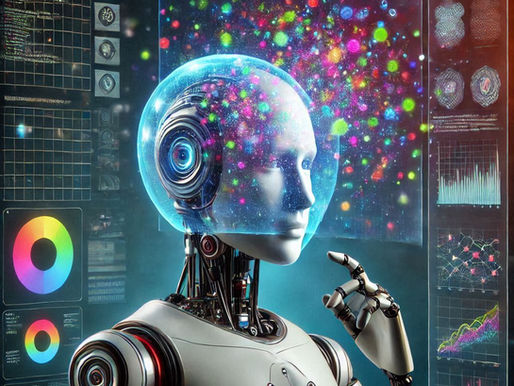top of page


Policy Collapse in AI: Understanding the Challenge of Control
Policy collapse refers to a phenomenon in artificial intelligence systems where an AI's learned behavior or decision-making process breaks down in unexpected ways, often producing results that deviate significantly from its intended objectives. This concept has become increasingly important as AI systems grow more complex and are deployed in critical applications. Understanding Policy Collapse At its core, policy collapse occurs when an AI system's learned policy—its strat
Dec 16, 20242 min read


Reinforcement Fine-Tuning in AI
Reinforcement Fine-Tuning (RFT) represents a significant advancement in artificial intelligence , combining principles from reinforcement learning with traditional model fine-tuning approaches. Unlike conventional supervised fine-tuning that relies on labeled data pairs, RFT enables models to learn from feedback signals that indicate the quality or desirability of their outputs. This approach has become increasingly important in developing more capable and aligned AI syste
Dec 15, 20243 min read


Understanding Aleatoric Uncertainty in AI
Imagine trying to predict tomorrow's weather. Even with the most sophisticated weather models and extensive data, there's always an element of unpredictability. This inherent randomness is what we call aleatoric uncertainty - a fundamental concept in artificial intelligence that helps us understand the limits of what our AI systems can predict. What is Aleatoric Uncertainty? The term "aleatoric" comes from the Latin word "aleator," meaning a dice player. Just as rolling di
Dec 13, 20243 min read


Understanding Sampling Methods in LLMs
In artificial intelligence , particularly in language models, sampling is the process of generating outputs by selecting tokens from a probability distribution . Think of it as the model making choices about what to say next, much like a human choosing their next word in a conversation. The way these choices are made significantly impacts the quality, creativity, and reliability of AI-generated content. Understanding Basic Sampling Methods Greedy Decoding: Greedy decoding is
Dec 12, 20243 min read


Uncertainty Quantification in AI
Uncertainty quantification (UQ) in artificial intelligence is a crucial aspect of developing reliable and trustworthy AI systems . As AI models are increasingly deployed in high-stakes applications like healthcare, autonomous vehicles, and financial systems, understanding and quantifying the uncertainty in their predictions becomes paramount. This article explores the fundamental concepts, methods, and applications of uncertainty quantification in AI. Understanding Types o
Dec 12, 20244 min read


Understanding Feature Drift in AI Systems
Feature drift, also known as feature evolution or covariate shift, represents one of the most significant challenges in maintaining artificial intelligence systems in production environments. It occurs when the statistical properties of input features change over time, potentially compromising model performance even when the fundamental relationship between features and target variables remains constant. Understanding Feature Drift Definition and Fundamental Concepts: Featu
Dec 11, 20243 min read


Chaos Engineering in AI Systems: Building Resilient Artificial Intelligence
Chaos Engineering for AI represents a methodical approach to building robust AI systems by deliberately introducing controlled disruptions to verify system stability and identify potential points of failure before they impact production environments. This proactive testing methodology has emerged as an essential practice for organizations seeking to deploy and maintain dependable AI solutions at scale. Understanding Chaos Engineering in AI Chaos Engineering in AI involves de
Dec 10, 20244 min read


The Empathy Simulation Problem in AI: Understanding the Challenges of Authentic Emotional Intelligence
As artificial intelligence systems become increasingly sophisticated in their ability to engage in human-like conversations and interactions, we face a fundamental question: Can AI truly experience empathy, or is it merely simulating empathetic responses? This challenge, known as the Empathy Simulation Problem, raises important philosophical, ethical, and practical considerations for the development and deployment of AI systems. The Nature of the Problem The Empathy Simulati
Dec 8, 20243 min read
bottom of page